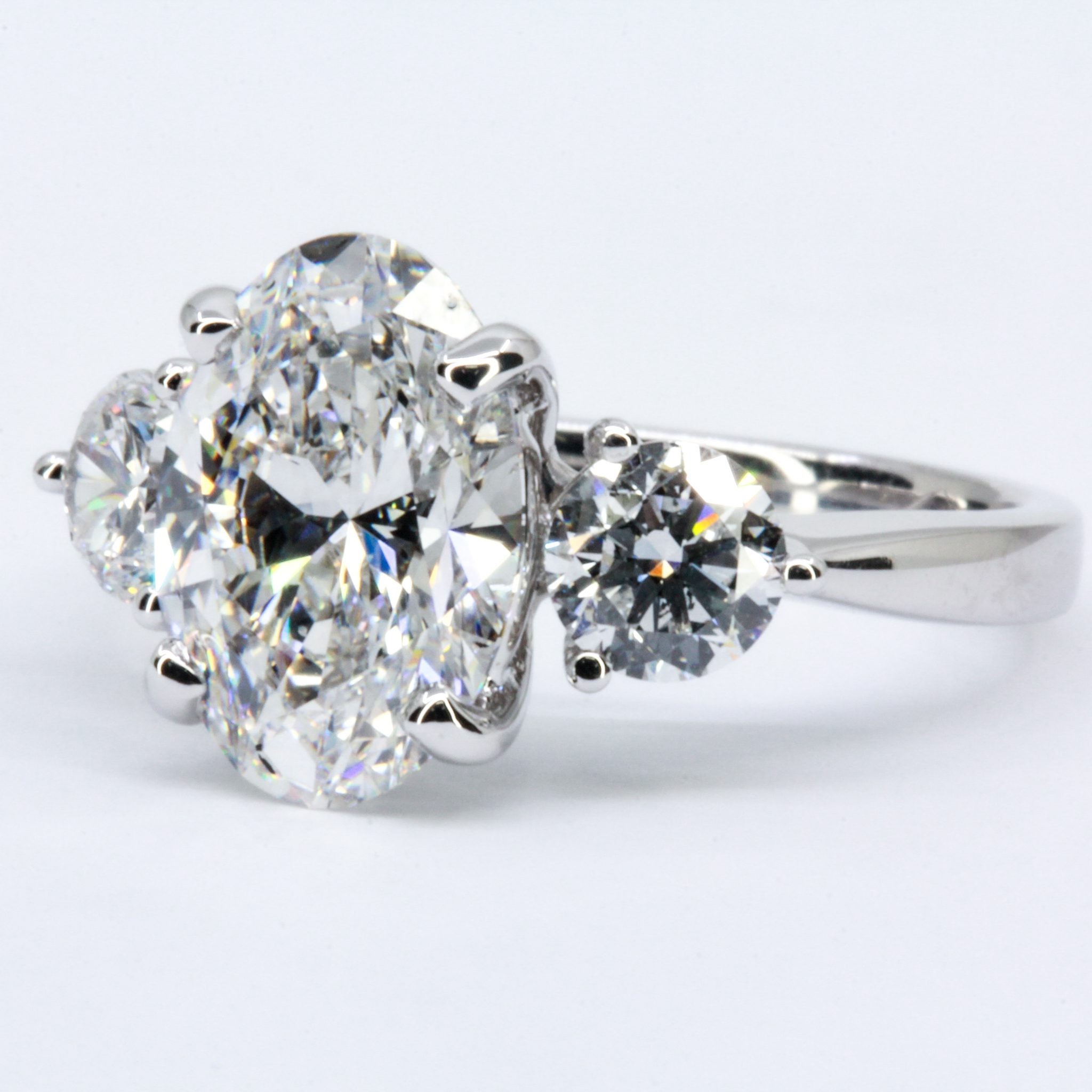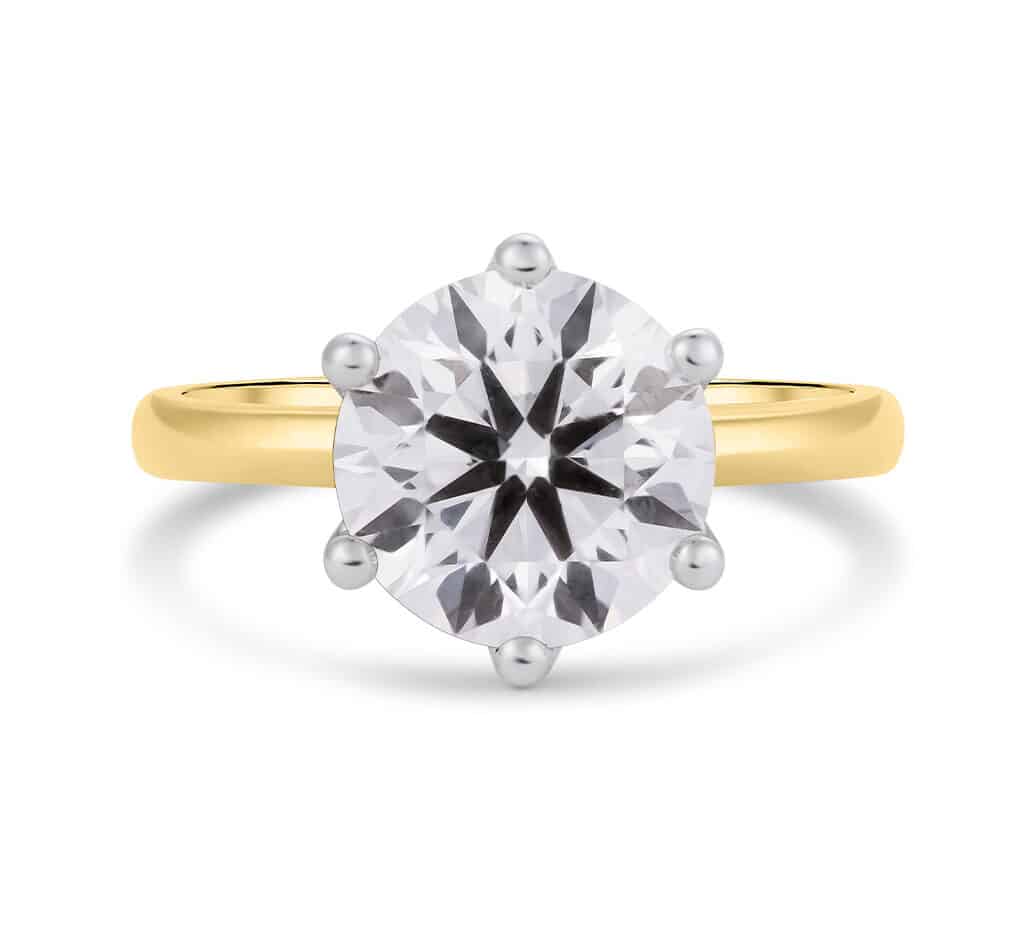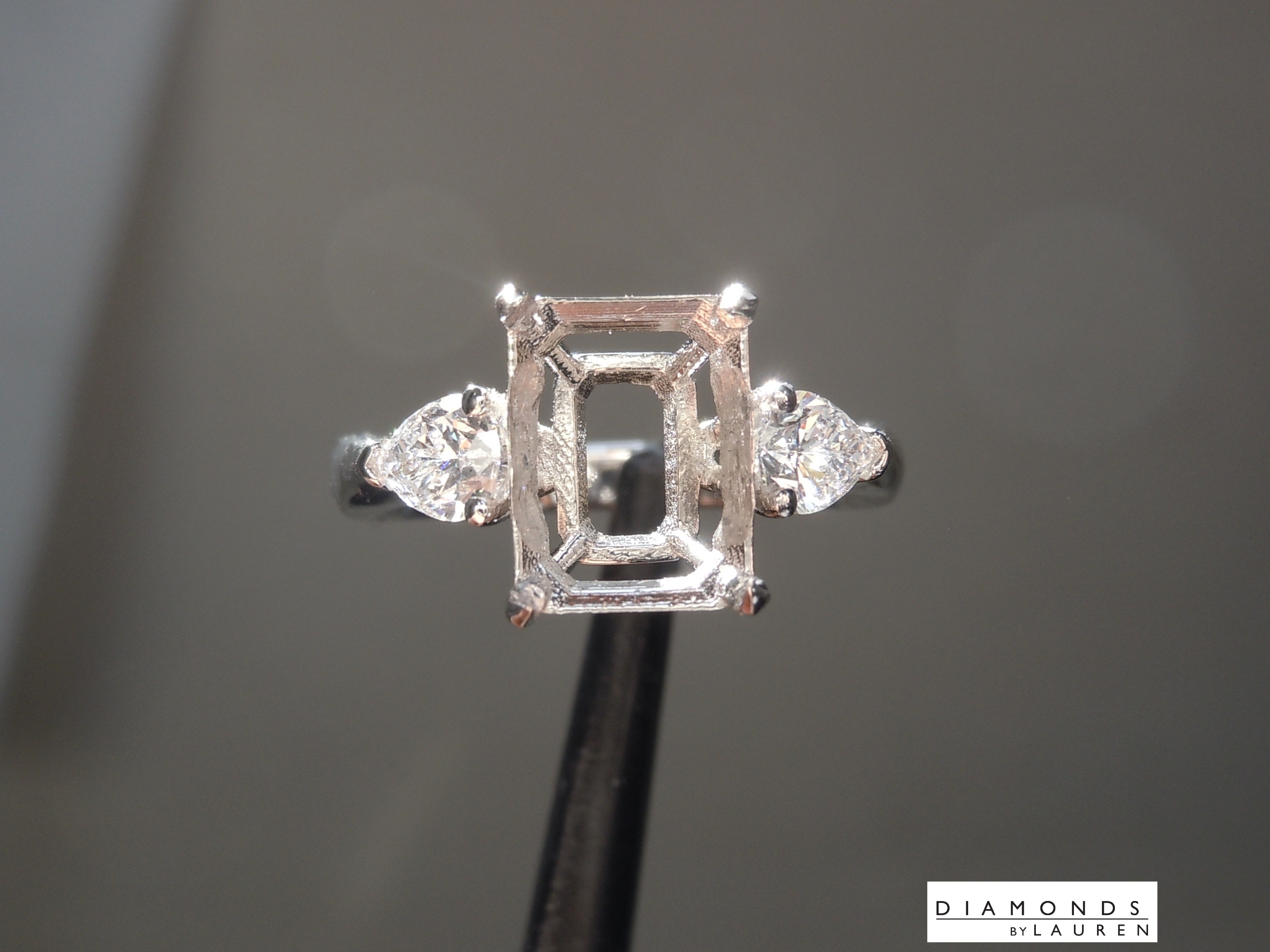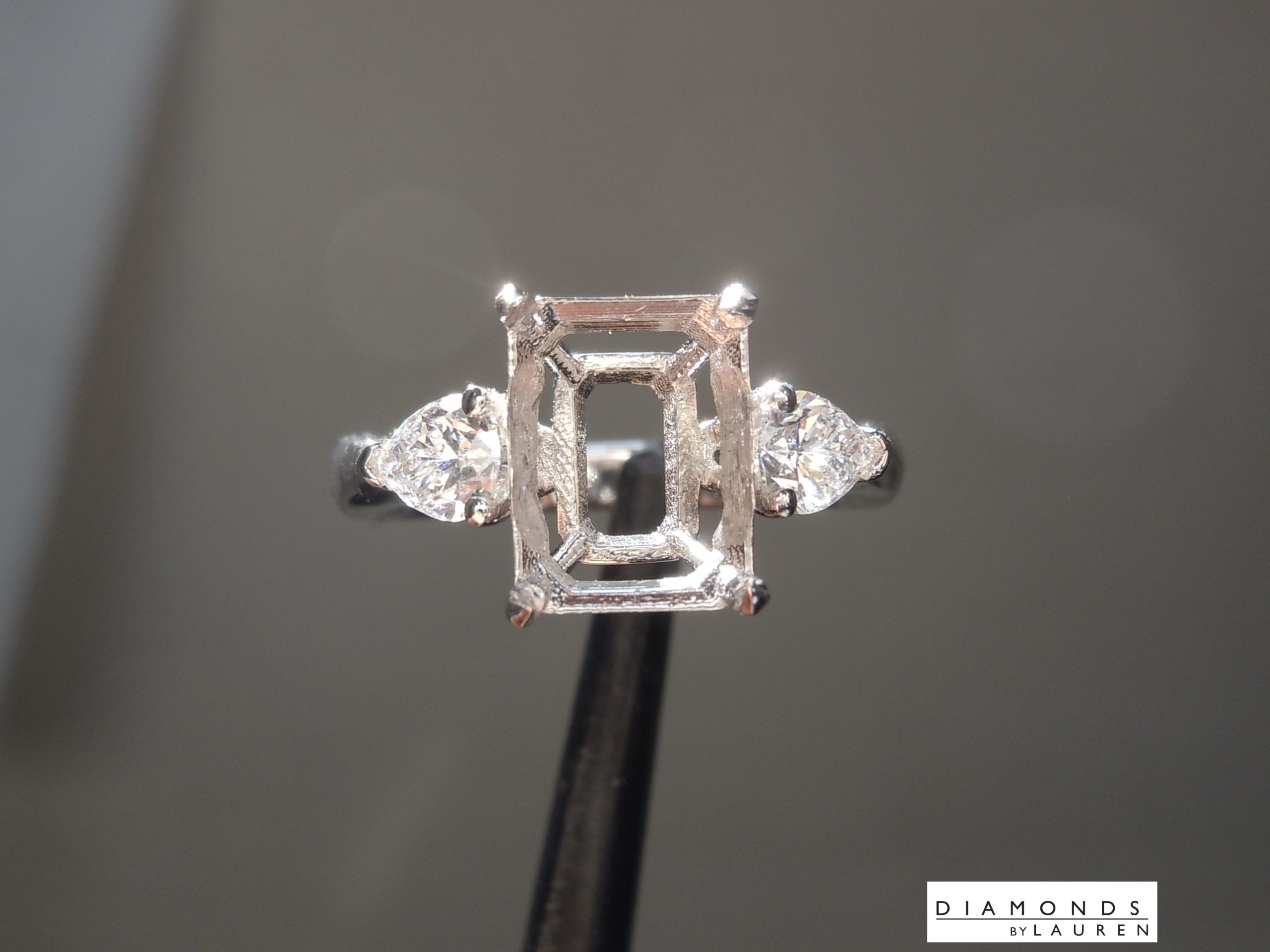Buy lab grown diamond ring and step into a new era of fine jewelry where style, sustainability, and smart choices come together beautifully. These cutting-edge rings are not only visually stunning but also offer a fresh take on traditional diamonds, making them an ideal pick for anyone who values beauty with a conscience.
Lab grown diamonds are crafted using advanced technology that replicates natural diamond conditions, resulting in gems that are chemically and visually indistinguishable from mined diamonds. Choosing a lab grown diamond ring means enjoying lower prices, ethical sourcing, and a wide variety of shapes, styles, and settings to suit every occasion and personality.
Introduction to Lab Grown Diamond Rings
Lab grown diamond rings have rapidly become a modern favorite for those seeking elegance, value, and responsibility in their jewelry choices. Created in advanced laboratories using cutting-edge technology, these diamonds embody both beauty and innovation. Whether for engagement, anniversary, or fashion, lab grown diamonds offer a new dimension to the traditional ring market.
The process of creating lab grown diamonds involves simulating the natural conditions under which diamonds form in the earth’s mantle. Two primary methods are used: High Pressure High Temperature (HPHT) and Chemical Vapor Deposition (CVD). Both approaches result in genuine diamonds with the same physical, chemical, and optical properties as their mined counterparts. The only difference lies in their origin—lab grown rather than geological.
Environmental and Ethical Benefits
Selecting lab grown diamonds is a conscious choice for many consumers who value environmental and ethical considerations. Traditional diamond mining can be resource-intensive and linked to ecological disturbances, while lab grown diamonds dramatically reduce environmental impact by avoiding large-scale mining activities.
Lab grown diamonds also address ethical concerns, eliminating the risk of supporting conflict zones or unregulated labor practices. With traceable origins, these diamonds provide peace of mind for buyers who care not just about beauty, but also about the source of their jewelry.
Types of Lab Grown Diamond Rings
The versatility of lab grown diamonds allows for a wide variety of ring designs. You’ll find everything from classic solitaires to elaborate multi-stone rings, as well as contemporary and custom creations tailored to suit every personality and occasion. This diversity ensures that lab grown diamond rings can complement any style or preference, making them an inclusive choice for today’s jewelry lovers.
Benefits of Purchasing Lab Grown Diamond Rings: Buy Lab Grown Diamond Ring
Lab grown diamond rings present multiple advantages over their natural counterparts, making them an appealing option for savvy shoppers. Not only do they provide exceptional beauty and durability, but they also offer greater transparency and value.
One of the standout benefits is cost. Lab grown diamonds typically cost 20-40% less than mined diamonds of comparable size and quality. This price advantage enables buyers to select a larger or higher-quality stone within the same budget.
Another key advantage is the ability to trace the diamond’s origin, ensuring ethical sourcing and transparency throughout the supply chain. Lab grown diamonds are also readily available in a variety of cuts, colors, and carat weights, making it easier to find the perfect ring for any occasion.
Main Advantages for Consumers

The decision to purchase a lab grown diamond ring offers both practical and emotional rewards. Here are the top benefits that set them apart:
- Significant cost savings compared to natural diamonds
- Guaranteed ethical sourcing and conflict-free origins
- Lower environmental impact and a reduced carbon footprint
- Consistent quality with high purity and clarity options
- Wide range of sizes, cuts, and ring designs readily available
- Full traceability from production to purchase
How to Choose the Right Lab Grown Diamond Ring
Selecting a lab grown diamond ring involves careful consideration of both the diamond’s characteristics and the overall ring design. By focusing on established criteria, buyers can confidently find a ring that aligns with their preferences and values.
The traditional “Four Cs”—cut, carat, clarity, and color—are just as important for lab grown diamonds as they are for mined ones. Cut affects brilliance, carat determines size, clarity reflects the absence of imperfections, and color ranges from colorless to subtle hues. Shoppers should prioritize these factors based on what matters most to them, whether it’s sparkle, size, or budget.
Matching Ring Styles to Preferences and Occasions
Personal style and the occasion often guide ring selection. Whether you’re looking for a timeless engagement ring, a modern statement piece, or a romantic anniversary band, lab grown diamonds can be set in a variety of ways to suit every taste. It’s important to consider the wearer’s lifestyle, fashion sense, and preferences for metal type or setting style.
Comparison of Ring Settings and Features
To help you compare your options, here’s a table summarizing popular ring settings and their distinctive features:
| Setting Style | Visual Appeal | Durability | Best For |
|---|---|---|---|
| Solitaire | Classic, timeless, focuses on the center stone | Very durable due to simple design | Engagement, everyday wear |
| Halo | Brilliant sparkle, enhances perceived size | Good, but requires more maintenance | Statement pieces, special occasions |
| Three-Stone | Symbolic, elegant with side stones | Sturdy, balances beauty and security | Anniversaries, meaningful milestones |
| Pavé | Luxurious, lots of surface sparkle | Less durable, stones may loosen over time | Fashion rings, those seeking extra glamour |
Popular Styles and Settings for Lab Grown Diamond Rings
Lab grown diamond rings are available in a wide range of styles, making them suitable for diverse tastes and occasions. The technology behind these diamonds allows for creative freedom and customization, resulting in both timeless classics and modern trends.
Timeless designs such as solitaire settings and halo rings remain popular, as they showcase the brilliance and clarity of lab grown diamonds. Meanwhile, vintage-inspired and minimalist rings have also gained traction among buyers seeking something unique yet refined.
Examples of Trendy Ring Settings
Trendy settings combine both aesthetic appeal and practical functionality. Here are some popular options for today’s buyers:
- Solitaire: A single diamond set in a simple band for maximum elegance and focus on the stone
- Halo: A central diamond encircled by smaller stones to enhance sparkle and size
- Three-Stone: A main stone flanked by two side stones, often symbolizing the past, present, and future
- Pavé: Bands adorned with tiny diamonds for a continuous sparkle effect
- Vintage: Intricate designs reminiscent of bygone eras, often featuring filigree or milgrain details
- Bezel: The diamond is encased in a metal rim for a sleek, modern look and extra protection
Custom Design Options for Lab Grown Diamond Rings, Buy lab grown diamond ring
Customization is a major advantage of lab grown diamond rings. Buyers have the flexibility to select not just the stone, but every detail of the ring, including metal type, setting style, and even unique motifs or engravings. Jewelers frequently offer design consultations to help transform personal visions into wearable works of art, making each ring truly one-of-a-kind.
Step-by-Step Buying Process for Lab Grown Diamond Rings
Purchasing a lab grown diamond ring is a rewarding experience when approached methodically. Whether shopping online or in-store, a structured process helps ensure you make an informed and satisfying decision.
Begin by setting a budget and identifying trusted retailers with certified stones. Review the available options, compare diamonds based on the Four Cs, and select a setting that matches your style. Once you’ve made your choice, verify the diamond’s certification for authenticity and ethical sourcing before finalizing your purchase.
Buying Process Overview
To provide a clear roadmap, here’s a table outlining the recommended steps for buying a lab grown diamond ring:
| Step | Action | Requirements | Recommendations |
|---|---|---|---|
| 1 | Set your budget | Know your financial limits | Consider future expenses for resizing or customization |
| 2 | Research retailers | Check credentials and reviews | Look for certifications and ethical guarantees |
| 3 | Compare diamonds | Understand the Four Cs | Ask for grading reports from reputable labs |
| 4 | Select ring setting | Match to personal style or occasion | Try on different styles if shopping in-store |
| 5 | Review certification | Request diamond certificate | Certifications from IGI, GIA, or HRD are most reliable |
| 6 | Finalize purchase | Confirm all details and warranty | Keep all documentation for future reference |
Verifying Authenticity and Certification

Ensuring that your lab grown diamond is authentic is essential. Always request a grading report from a globally recognized gemological institute such as IGI, GIA, or HRD. These certificates confirm not only the diamond’s quality but also its lab-grown origin, giving you confidence in your purchase.
Comparing Lab Grown Diamond Rings with Natural Diamond Rings
Understanding the differences and similarities between lab grown and natural diamond rings is crucial for making an informed choice. Both types possess the same sparkle, durability, and charm, but their origins, pricing, and long-term value can vary.
Visually, it is nearly impossible to distinguish between lab grown and natural diamonds without expert equipment. Both types are graded using the same standards. Physically, they share identical hardness and durability, making them equally suitable for daily wear.
Comparison Table: Lab Grown vs. Natural Diamond Rings
| Aspect | Lab Grown Diamonds | Natural Diamonds | Notes |
|---|---|---|---|
| Appearance | Indistinguishable, equally brilliant | Indistinguishable, equally brilliant | Expert analysis needed to tell apart |
| Origin | Created in laboratory | Formed underground over billions of years | Traceability easier with lab grown |
| Environmental Impact | Minimal, no mining required | Requires mining, affects landscape | Lab grown is more eco-friendly |
| Cost | 20-40% less expensive | Higher, especially for larger stones | Lab grown offers better value |
| Resale Value | Generally lower | Potentially higher depending on rarity | Natural diamonds may hold value longer |
Longevity, Maintenance, and Resale Value
Both lab grown and natural diamonds have impressive hardness and can last for generations with proper care. Maintenance requirements are virtually identical for both types. When it comes to resale, natural diamonds may retain slightly more value due to rarity, but this gap is closing as lab grown diamonds gain mainstream acceptance.
Factors Influencing Buyer Decisions
Buyers typically weigh considerations such as cost, environmental impact, origin traceability, and perceived long-term value. For those prioritizing ethics and sustainability, lab grown diamond rings are often the preferred choice, while collectors and traditionalists may opt for natural diamonds.
Trusted Retailers and Buying Platforms
Finding a reputable retailer is a crucial step in purchasing a lab grown diamond ring. Buyers should look for established jewelers and platforms that specialize in lab grown diamonds, as these sellers are more likely to offer genuine products with transparent sourcing and reliable certifications.
Customer service, warranties, and return policies play an integral role in a positive buying experience. Leading retailers provide detailed product information, lifetime warranties, and flexible return options to ensure satisfaction and build trust with their customers.
List of Reputable Retailers and Platforms
Below are some well-known retailers and online platforms that focus on high-quality lab grown diamond rings:
- Brilliant Earth — Emphasizes ethical sourcing and custom design options
- James Allen — Known for interactive 360-degree ring viewing and certified stones
- Clean Origin — Specializes exclusively in lab grown diamonds with a transparent supply chain
- Vrai — Direct-from-manufacturer approach with sustainable practices
Identifying Reliable Sources and Avoiding Scams
To avoid fraudulent sellers, always check for independent reviews, request grading certificates from reputable labs, and confirm company credentials. Reliable retailers provide clear contact information, responsive customer support, and detailed descriptions of diamond origins and characteristics. Avoid deals that seem too good to be true or sellers who hesitate to provide documentation.
Care and Maintenance of Lab Grown Diamond Rings

Proper care and maintenance are essential to preserve the brilliance and longevity of lab grown diamond rings. Routine cleaning and careful storage help keep the stones looking vibrant and stunning for years to come.
Lab grown diamonds are as durable as natural ones, but they still require attention to avoid surface buildup or damage. Regular cleaning helps maintain their sparkle, while proper storage protects them from scratches and accidental knocks.
Recommended Cleaning Methods and Tools
The table below summarizes effective ways to clean and care for your lab grown diamond rings:
| Cleaning Method | Tools Needed | Frequency | Notes |
|---|---|---|---|
| Warm Soapy Water | Mild dish soap, soft toothbrush | Monthly | Gently scrub to remove dirt and oil |
| Professional Ultrasonic Cleaning | Jeweler’s ultrasonic cleaner | Every 6-12 months | Check with jeweler for compatibility with setting |
| Jewelry Cleaning Solution | Commercial jewelry cleaner | As needed | Follow manufacturer’s instructions |
| Polishing Cloth | Lint-free polishing cloth | Weekly | Buff to maintain shine |
Storing and Protecting Rings
Store lab grown diamond rings in individual soft-lined compartments or pouches to prevent scratching. Avoid exposing them to harsh chemicals, extreme temperatures, or physical impacts. Regular inspections by a professional jeweler ensure prongs and settings remain secure, preserving both the ring’s beauty and its value over time.
Stories and Experiences: Real Buyer Testimonials
Personal stories and testimonials offer valuable insight into the satisfaction and experiences of those who have chosen lab grown diamond rings. Buyers from various backgrounds have found meaning, value, and confidence in their decision.
Many individuals are drawn to lab grown diamonds for their ethical appeal and affordability, while others appreciate the wide range of design options and the ability to customize their pieces. These diverse stories reflect the growing acceptance and enthusiasm for lab grown diamonds in the market.
“I chose a lab grown diamond engagement ring because I wanted something beautiful and ethical. The fact that it’s environmentally friendly and conflict-free made it an easy decision. My fiancé loves it, and we both feel good about our choice!” — Ashley, New York
“As someone who loves innovative technology, I was fascinated by the science behind lab grown diamonds. The ring I purchased for my anniversary is stunning, and knowing exactly where it came from gave me peace of mind.” — David, San Francisco
Diversity of Buyers and Use Cases
Lab grown diamond rings appeal to a wide range of buyers—environmentally conscious couples, tech enthusiasts, value-driven shoppers, and those seeking custom, meaningful jewelry. Whether for engagements, anniversaries, or personal milestones, these rings offer a blend of beauty, ethics, and innovation that resonates with today’s values.
Conclusion
Choosing to buy lab grown diamond ring is more than just a trend—it’s a thoughtful move toward quality, responsibility, and style. As the jewelry world embraces innovation and ethical standards, lab grown diamonds shine brighter than ever, offering you endless possibilities to express your unique taste while making a positive impact.
